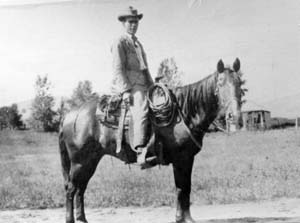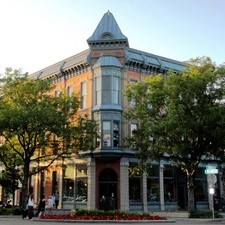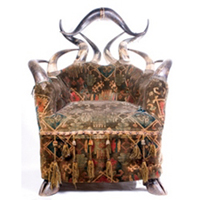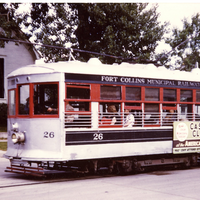News Flashbacks
Remittance Men Found Life Joyful
Author: James R. Miller
Page 81 Pioneer Association Scrapbook, 1957-1972
Fort Collins Coloradoan, Dec. 3, 1963

What was life like in Fort Collins 80 years ago this week-in 1883? Well, for one thing, that was the week the Daily Express sent its new reporter out to the Gilpin, Brown and Craddock ranch to find out about the young Englishmen who had migrated to the Livermore area. Those were the days of the so-called remittance men--young English gentlemen who had come to the American West, either willingly or under parental pressure, "to learn ranching." If they did a lot of hunting and considerable "partying" besides, that was understandable, for it was a long distance to England, the source of disciplinary wrath; and communication facilities were slow at that time. Chiefly the Englishmen settled in the lower foothills areas of Larimer County, more especially in the Livermore region. There some of them lived in cabins, but others built pretentious houses, few of which now remain but many of which were elaborately furnished and fully equipped for lavish entertaining.
Game Was Plentiful
Game animals were plentiful in the mountains and on the plains to the east at that time. Elk, deer, antelope, wolves, mountain lions and many other lesser creatures were easily available. The Englishmen were fond of hunting; many of them brought friends from home for extended visits, chiefly that they might enjoy the hunting.
Most of these settlers engaged more or less seriously in raising livestock on the grassy grazing lands of the mountain slopes and in the "parks." Those who had remittance checks arriving regularly from England had little need to exert themselves greatly. It was a good life.
Nevertheless, it must be said that among them were many who were entranced by Colorado ranch life and who developed their ranches and built up good livestock herds. Many founded substantial and respected families and spent the rest of their lives in this area. These English "colonists" contributed much to the ranch, social and cultural life of early Larimer County.
In the fall of 1883, the Express hired a new reporter direct from New York, terming him the "local editor," a title conferred in lieu of a substantial part of the salary he had expected. The new arrival whose name, unfortunately, is not preserved for historical reference, was curious about all things western. That is why the publisher of the Express announced one day that "our local editor, who lately arrived from New York, has been offered the use of a broncho and invited to assist in branding colts at Gilpin, Brown and Craddock ranch tomorrow: next week's locals will be written by him standing up."
Described Ranch Life
But the reporter was "game." He liked what he saw of ranch life. He came back to town and wrote an account of his visit. It was not the type of story today's editor would accept, for it did not constitute a summary of statistics and details of Livermore ranching as a whole.
But it did give a brief glimpse, lost in much wordage and confusing clauses, of life as the young Englishmen lived it in the 1880s--a subject on which too few writers of the day left any record. The Express published its reporter's observations under the title of "The Life of the Ranchmen," as follows:
The fascination which this country has for young men was never more forcibly illustrated to the writer than it was during a late visit to the ranch of a couple of young foreigners not far from Fort Collins. These young gentlemen--and gentlement they are in the true sense of the word, when birth, education, wealth and manner are considered--live in a cabin which it would seem the most gross satire to call a hall, but it is a bachelor's hall nevertheless.
The housekeeping being done by the gentlemen themselves, with assistance of a man-of-all-work, who does everything from cow punching to baking the bread, the beauty of neatness of the general make-up of the interior may be inagined.
Really 'Roughing It'
It's roughing it, and no mistake, but the good health and good nature and jollity in consequence makes it a life of charming romance and devil-may-careishness which any young man who has the love of freedom and the true, stout heart of a man must truly enjoy.
The young men offering the illustration mentioned are scions of Britain's bluest blood, brought up with all the comforts, advantages and pleasures which money and society can give, yet between a life of dudish effeminacy in home drawing-rooms or the necessary restraint of what is considered by some 'more civilized life,' the broad, free, open plain, with its pure air and tonic of independence, is the choice in nearly every instance where the choice is made.
There is no mistake, this is the country and ranching for the occupation for young men of the right sort. There is not country in the world that can give a finer climate, certainly nowhere where life would be as pleasant, and today is an example of the weather. In such weather as this, a gallop over the plains, 'monarch of all you survey,' as the ranchman generally is, there is much real, right down pleasure.
All this, and especially when it's written by a young fellow who has put in his first experience of a day on a broncho, should encourage young fellows who have pluck who are wasting their time in the dingy offices and counting rooms of the eastern cities to come west.


Preserving the history of Fort Collins, Colorado & the Cache la Poudre region





